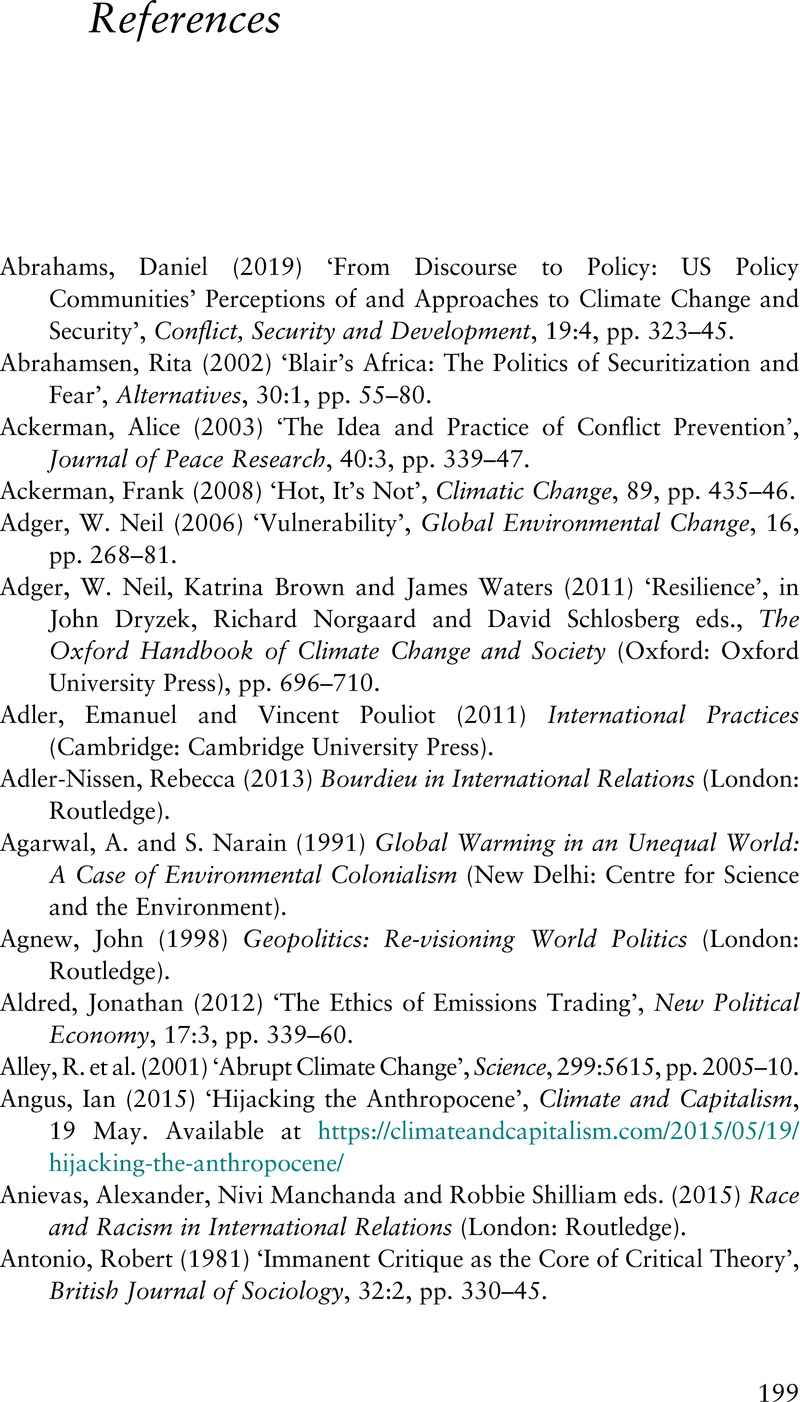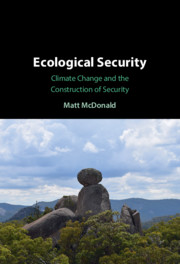Book contents
- Ecological Security
- Ecological Security
- Copyright page
- Contents
- Acknowledgements
- Acronyms and Abbreviations
- Introduction
- 1 The Construction of Security
- 2 Climate Security Discourses
- 3 Ecological Security
- 4 Means and Agents of Ecological Security
- 5 Towards Ecological Security?
- Conclusion
- References
- Index
- References
References
Published online by Cambridge University Press: 10 September 2021
- Ecological Security
- Ecological Security
- Copyright page
- Contents
- Acknowledgements
- Acronyms and Abbreviations
- Introduction
- 1 The Construction of Security
- 2 Climate Security Discourses
- 3 Ecological Security
- 4 Means and Agents of Ecological Security
- 5 Towards Ecological Security?
- Conclusion
- References
- Index
- References
Summary

- Type
- Chapter
- Information
- Ecological SecurityClimate Change and the Construction of Security, pp. 199 - 231Publisher: Cambridge University PressPrint publication year: 2021

